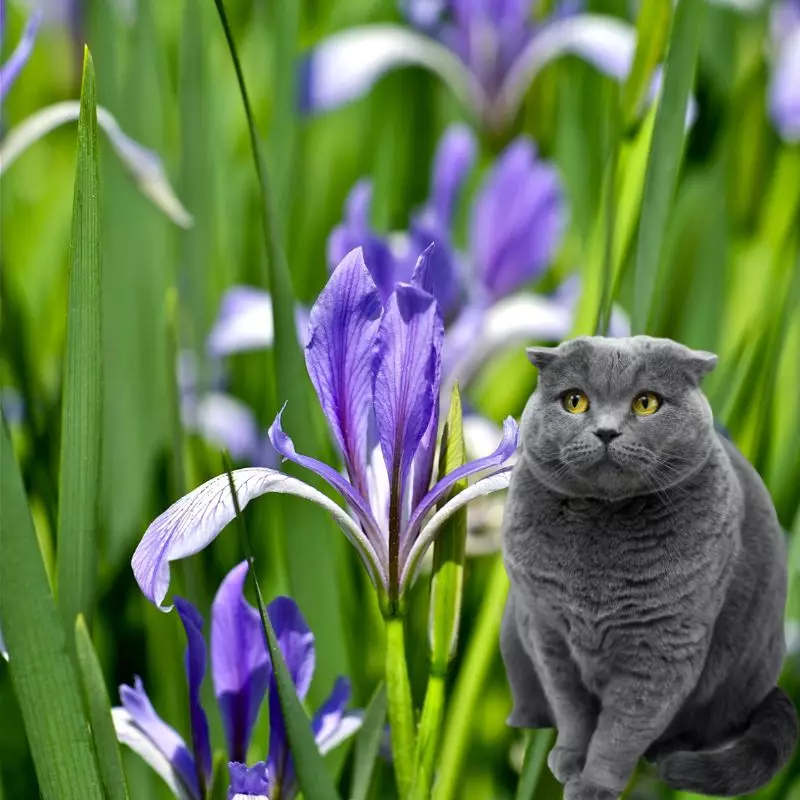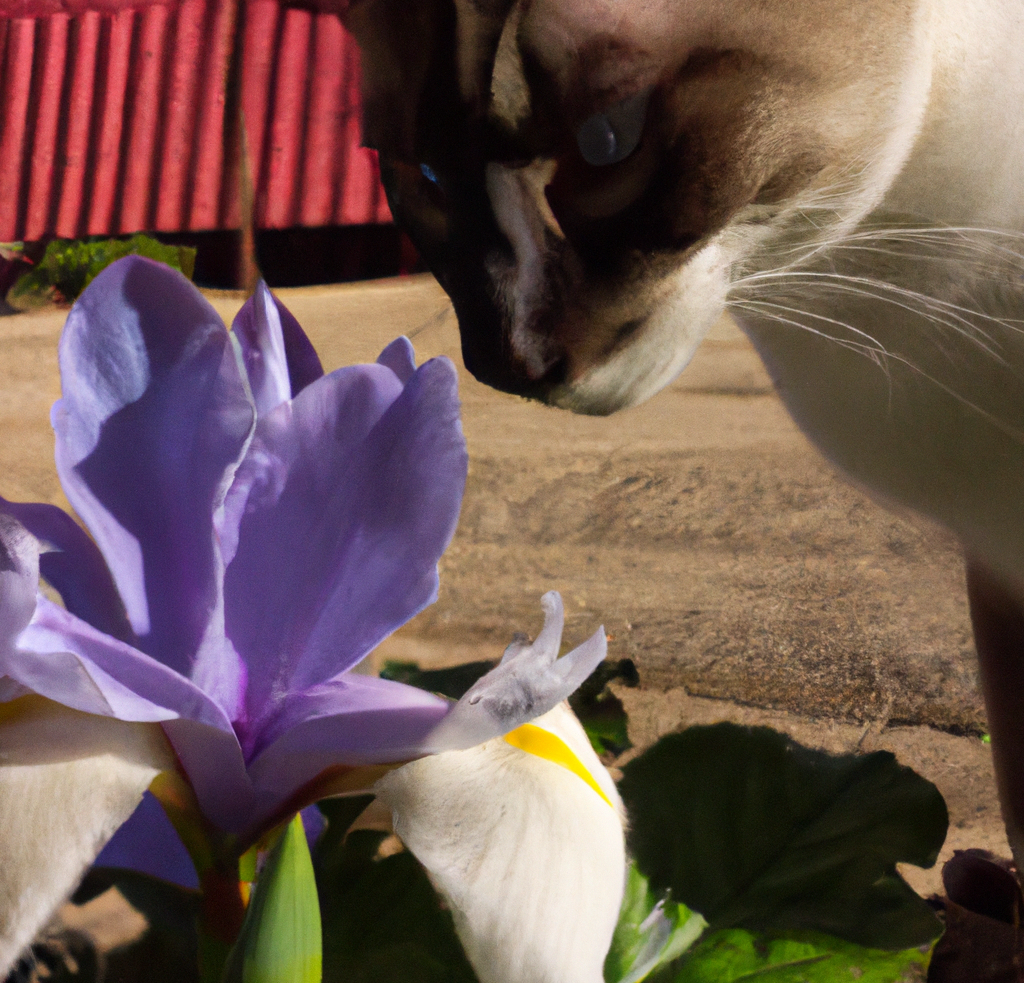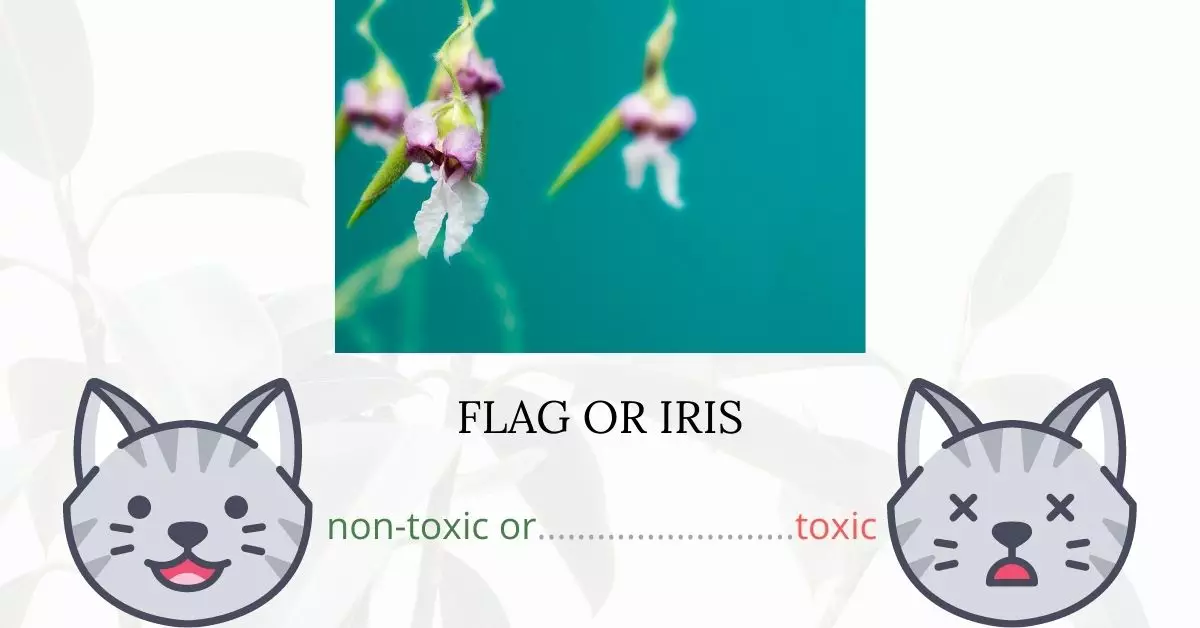Yes, Flag plants, more commonly known as Irises, are toxic to cats. Comprising compounds like iridin, irisin, or irisine – a form of glycoside – which are harmless to humans, these plants also contain pentacyclic terpenoids such as zeorin, missourin, and missouriensin. These particular compounds can irritate cats, leading to a plethora of symptoms. The highest concentrations of these chemicals are located within the plant’s rhizomes, roots, and bulbs. However, all parts of the plant – including the leaves, flowers, and stems – are toxic to cats.
This article has been written in close collaboration with a team of experienced DVMs (doctors of veterinary medicine). Their expertise ensures that the information presented here is both accurate and current, especially concerning the potential risks various plants pose to cats. For further validation, we have also conducted thorough research using high-authority websites, such as ASPCA and PetMD, to provide a comprehensive understanding of the risks associated with each plant, with a focus on Flags in this context.
Clinical Signs of Flag Plant or Iris Poisoning in Cats

When cats come into contact with, inhale the aroma of, or consume parts of the Flag plant, certain clinical signs and symptoms emerge, indicating potential poisoning. The severity of these symptoms primarily hinges on the quantity of the plant ingested and the specific part of the plant consumed. Here’s a breakdown of these symptoms and the reasons behind them:
- Vomiting: Ingesting the Flag plant causes an immediate reaction in a cat’s digestive system due to the presence of iridin, irisin, or irisine. These compounds can irritate the stomach lining, leading to vomiting as the body’s natural way of eliminating the toxic substance.
- Nausea: Before the act of vomiting, a cat might exhibit signs of nausea. This is an anticipatory response to the irritation and discomfort caused by the plant’s toxic components.
- Abdominal Pain: The pentacyclic terpenoids such as zeorin, missourin, and missouriensin, present in the plant, can lead to cramping and abdominal pain. These chemicals disturb the smooth muscles in the gastrointestinal tract, causing pain and discomfort.
- Diarrhea: As a secondary defense mechanism, the cat’s body might expel the toxins through diarrhea. The irritants in the plant accelerate bowel movement, leading to loose and frequent stools.
- Ulcers of the Mouth: Chewing on the plant, especially the bulb, rhizomes, or roots where the toxic concentrations are highest, can lead to the formation of ulcers in the mouth. The potent chemicals cause a direct corrosive action on the mucous membrane.
- Skin Irritation or Dermatitis: Direct contact with the plant’s sap or chemicals can result in skin reactions, especially if a cat has sensitive skin. This irritation is due to the plant’s inherent irritants, which can lead to redness, itching, or even small blisters.
It’s crucial to monitor any cat that has had contact with a Flag plant for these symptoms. Prompt veterinary attention can help alleviate the effects and ensure the safety of the affected feline.
First Aid and Treatment of Flag Plant or Iris Poisoning in Cats

Bringing your cat to the veterinarian is vital to prevent developing worse symptoms. The vet will provide treatment to your feline based on his diagnosis. The typical process may include flushing your cat’s mouth with water, intravenous fluid therapy, inducing vomit, and giving activated charcoal. Medications may be also prescribed depending on the symptoms that your cat is experiencing.
Recovery from Flag Plant or Iris Poisoning in Cats

Most cats will recover entirely from iris poisoning if they are given proper veterinary care as well as plenty of rest and hydration. If your cat has been poisoned, your veterinarian should keep an eye on him or her overnight or for as long as significant symptoms linger. To guarantee a quick recovery, you may need to take your cat to the vet for follow-up appointments.
Prevention of Flag Plant or Iris Poisoning in Cats
Avoid growing or bringing in flag plant or iris inside your house. Consider building a plant terrarium with cat-friendly plants. Minimizing your cat’s outdoor activities will also lessen the risk of exposure to flag plants and other toxic plants growing in your neighborhood.
If you love plants but have cats at home, check out these lists:





